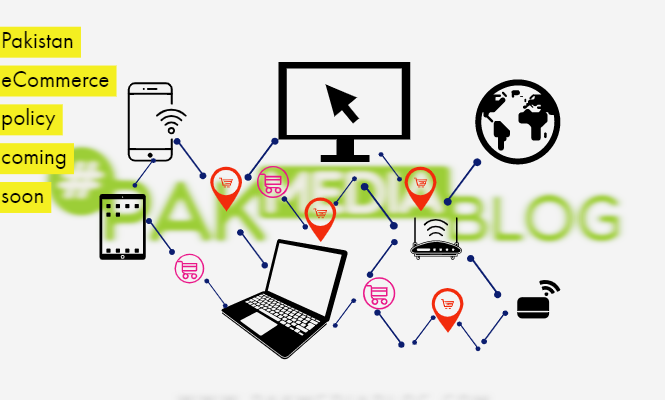Pakistan’s e-commerce industry is emerging rapidly and has the potential to strengthen country’s economy by creating more job opportunities, linking remote areas to mainstream, development of small and medium enterprises and finally enhancing exports through online platforms.
Ecommerce, also known as electronic commerce or internet commerce, refers to the buying and selling of goods or services using the internet, and the transfer of money and data to execute these transactions. One can get a lot of benefits by opting for eCommerce as it delivers a comprehensive range of benefits to retailers and merchants. Electronic Commerce is also known as e-commerce that consists of the purchasing and selling of products or services through electronic systems like computer networks and the Internet
Capitalizing on the efforts made by the public and private sectors so far, Pakistan now needs to step up and take measures to increase the competitiveness of local enterprises, thereby enhancing their share in global trade. For this, it is crucial to develop a policy framework for addressing key areas of concern i.e. consumer protection, role of financial sector in optimizing its growth and its revenue generating potential in the medium and long run.
This policy framework provides a glimpse of the current status of Pakistan’s e-commerce with primary focus on
(i) regulatory framework,
(ii) payment infrastructure,
(iii) taxation issues,
(iv) consumer protection in the digital environment,
(v) issues relating to logisticS
(vi) data ownership/sovereignty and data localization.
Critical areas to be covered in the Framework
Consumer Protection
Dispute Resolution Mechanism
Licensing and registration requirements
Taxation
Payment Gateway
Privacy and Personal Data Protection
Multilateral Disciplines on E-Commerce
Promotion of SMEs trough e-Commerce
Key stakeholders identified in this policy framework are e-commerce business enterprises including the innovative digital industries, financial institutions, revenue authorities, regulatory bodies, entities concerned with local/cross-border logistics and the consumers. While reflecting on the current issues being faced in each of the above-mentioned six areas, this policy framework discusses the views and concerns of all stakeholders and makes recommendations based on them. The strategies in the policy framework have been proposed with the objective of providing an enabling environment to the private sector, including SMEs, while allowing the government to regulate e-commerce sector for the benefit of the public at large in addition to achieving long term revenue generation goals. The strategies proposed in the policy framework tend to facilitate existing ecommerce business and also encourage entities involved in traditional commerce to venture into e-commerce, thereby improving prospects of productivity, generation of new employment opportunities and enhanced levels of consumer protection.
Pakistan’s e-commerce sales are expected to reach 1 billion US dollars by 2020 so that prominently highlights the growth opportunities in Pakistan.

